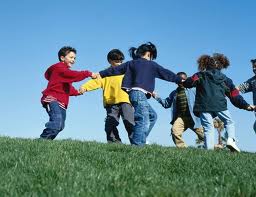Image source: psych-your-mind.blogspot.com
There are people who are worried about social skills and social aspects of homeschooling as they tend to believe that child and parent stuck in a room learning all day and student will not have enough time to make friends and create skills. Again and again, I am asked about this and this is really myth.
As a homeschooler, child will get plenty of social interaction during park days, field trip and play group. Homeschool kids gets to take physical education classes, music lessons, cooking lesson, horse riding and so on and there is plenty of opportunity to socially interact with other kids and adults alike, just like we do it real life.
The Home-School Connection: Lessons Learned in a Culturally and Linguistically Diverse Community
Social skills is an area of deep concern when it comes to
homeschooling. Many critics point out that since man needs to hone
his social skills, a homeschooling environment where social
interaction is limited is detrimental to his growth and
development. But studies have proved this wrong.
Children put into the fiercely competitive school environments
lack the confidence to hold a conversation. Such children show
little genuine interest in the topic of conversation and don’t
know how to interact with people of various age groups,
especially their elders.
Children who learn at home are more aware of the implications and
the purpose of their learning. They will ask intelligent questions
and make accurate observations. Children begin their life by
imitating their parents. Homeschooled children therefore pick
up the sterling qualities they see in their parents. On the other
hand, they are protected from the detrimental influences of their
peers.
These children are thus better equipped with the tools necessary
to face the world. The positive reinforcement that takes place
in the homeschooling environment as opposed to being abandoned,
embarrassed or ignored in a normal school environment strengthens
their self-esteem. Children turn out to be better balanced and
well-rounded as they progress into adulthood.

